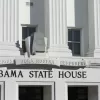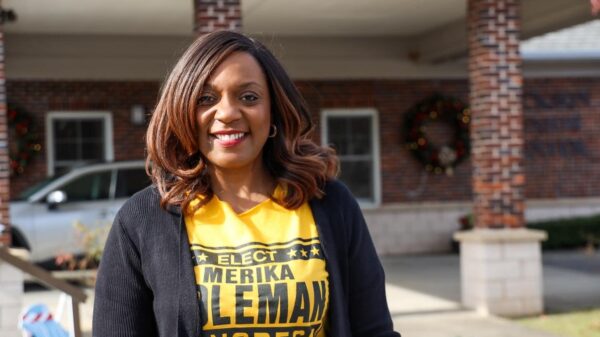By Brandon Moseley
Alabama Political Reporter
On Tuesday, March 22, Alabama Governor Robert Bentley told doctors and other employees at Monroe County Hospital, that a lottery is probably the only realistic option for raising more money for Medicaid.
Alabama Citizens Action Program Executive Director, Joe Godfrey, said in a statement, “If God’s people do not want to see a State-sponsored lottery and, possibly, casino gambling in Alabama, we had better be continuing to call, email and write our House Members and State Senators and make it very clear to them that we are counting on them to oppose all pro-gambling bills! It appears the Governor and some in the Legislature are trying to set up a budgetary crisis so that the ‘only solution’ is legalized gambling, but gambling is not a solution! It will only make the state economy suffer more!”
Alabama State Senator Jim McClendon (R-Springville) has introduced lottery legislation, though his Senate Bill 19 does not earmark the money for the State General Fund or the troubled Alabama Medicaid Program.
Senator McClendon wrote recently in the Alabama Political Reporter that: “Medicaid and the entire health delivery system for the State of Alabama is a House of cards, and one of the integral cards is Medicaid itself. If Medicaid falters, the entire system falters. Without Medicaid, hospitals will close, and the entire system will be jeopardized. Thousands, no, hundreds of thousands of Alabamians will be denied access to healthcare.”
Sen. McClendon said, “The RCO model was adopted by this legislature because we are broke, and it is getting worse year by year. The RCO model was adopted to reduce the ever increasing pressure on the General Fund. It was never touted as a way to stop this growing demand, but it is the only way we know to slow this growth.”
Sen. McClendon said that Medicaid needs an incredible $60 million more in 2017 that it was appropriated in the 2016 general fund budget to just provide the same services. Because of the RCO agreement Alabama entered into with the federal government.
“Medicaid needs an additional $60M to keep the RCO program on track…The Federal Government has offered to inject 100’s of millions of dollars into the conversion to RCOs, but, in order to qualify we must pony up the match. That will continue to happen year after year for the next 5 years, yet, we have made NO preparation the immediate upcoming year.”
Sen. McClendon said that the legislature and the voters both are reluctant to raise taxes or combine the two state general fund (SGF) with the education trust fund (ETF) so that legislators can tap into income tax dollars that go to education now for SGF programs like Medicaid. “So far I have not seen nor heard of any plan from anybody that will rescue either Medicaid or the prisons,” McClendon said.
The Governor is asking for $785 million for Medicaid alone as well as a $800 million bond issue to build massive new prisons.
The House passed a budget with just $700 million appropriated for Medicaid. McClendon said, “I have heard that the governor will veto the General Fund Budget as passed by the Senate, and I have heard that we may well override that veto. I have heard whether we override or not, the Governor will call a special session to address the Medicaid issue.”
McClendon claimed that the lottery would, “Provide sufficient revenue to the State that could remedy this for at least the next five years and likely beyond that. It will allow us to get the full drawdown from the Federal Government, and enough to help with the prison crisis as well. The lottery as Representative Harper and I have proposed will generate, according to the Legislative Fiscal Office, between $285M and $300M. There is another bill in the Tourism committee that allows only Power Ball type lotteries, however is produces the state about 1/5 this amount of money.”
McClendon said that SB19, “Sits quietly in committee, and I have asked Chairman and Pro Tem Marsh not to bring it to a committee vote till I know there is sufficient support for a floor vote. Quite a few senators have indicated support for the bill as it is written, but not enough.”
Even many gambling proponents however find SB19 to be troublesome. Some wants casino gambling and won’t support a lottery bill if it doesn’t include casinos. Others want to see the money earmarked for education or for a new college scholarship benefit like Georgia has and there are still a sizable number of legislators who oppose any lottery.
Secondly, if the lottery vote is not until November, and there is no certainty that the voting public votes for a lottery, then the legislature has to come back into session in 2017 to set up the lottery commission and it will take them a few months to get up and operational. A lottery at this point is unlikely to be much help for the 2017 fiscal year which begins on October 1.
Original reporting by the Alabama Media Group’s Mike Cason contributed to this report.

















































